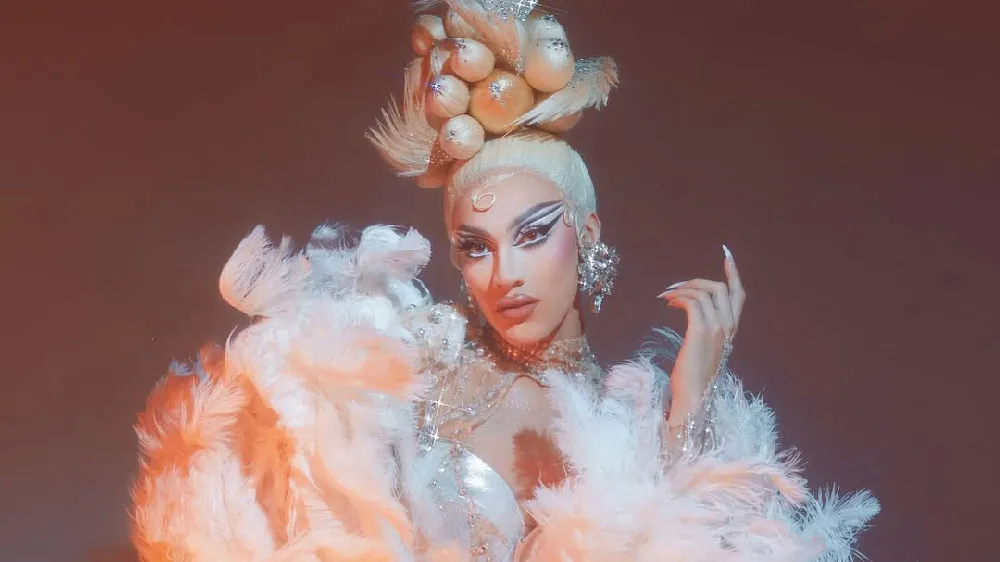October 15, 2013
Hairy Tales
Michael Cox READ TIME: 5 MIN.
By calling Angela Carter's duet of fables-based-radio-plays "Hairy Tales," Imaginary Beasts is saying a lot about the experience. "Hair", and even more so, "hairy" is a word we associate with sensuality, nakedness and our genitalia. It's also something we use to describe wild beasts and sticky situations. Additionally this simple descriptive word means, "dangerous and complicated," and these wonderful stories by one of the most influential British writers of the post-WWII era are not just "hairy," they're "hairy on the inside."
Fairy Tales persist within Western mythologies as proletariat parables for shaping societal behavior. This is why we feed them to our children. Like breakfast cereal, they're basically just processed sugar-snacks fortified with essential nutrients - or the values and fears we deem necessary to instill in our children so that they can become good citizens.
Many artists have done their own personal take on fairy tales like "Little Red Riding Hood" and "Sleeping Beauty," but few of them really elevate the genre. Carter's radio plays "The Company of Wolves" and "Vampirella" do.
"If you spy a naked man among the pines, you must run as if the Devil were after you," we are warned in "The Company of Wolves."
In this sensual retelling of "Little Red Riding Hood," we as Little Red (Erin Butcher) wear our sexuality as obviously as a crimson cloak and hood (the color of menstrual blood, to which we know that the canine nose is sensitive.)
We are warned that in the deep winter, men become wolves and wolves become men, and in order to transform a man must strip naked. (Playing "hairy" men and wolves are William Schuller, Joey Pelletier and Michael Underhill.)
But when we (as Little Red) finally meet a wolf, he is in our granny's (Lorna Nogueira) clothing.
This is where the myth changes. Rather than running away, we confront (what we are taught to be) our greatest fear by empathetically undressing.
Then, as we undresses the wolf we notice, "What big arms you have."
"All the better to hug you with," he says.
We kisses him and say, "What big teeth you have."
"All the better to eat you with." He smiles.
Because we are unafraid, we become flesh rather that meat like the other humans that the wolf has encountered.
"Vampirella" is a thinking girl's "Twilight."
Finally we are not some beautiful, fragile creature "Bella" that sits around whining and acting "special" until a man saves our life.
"We" are the Countess and two kick-ass babes play us simultaneously. Now you may ask why it takes two actresses to play us. Well, one (Amy Meyer) is our external self (the us the world sees) while the other (Poornima Kirby) is our inner self. She dresses in only her foundation undergarments; she is our framework, our lusty inner self.
The thing that's awesome about us is we don't take shit. We don't dote over Edward Cullen because he's sparkly. We're the vampire in this story and we suck what we want! And when we hunt for guys, we hunt for virgins.
This time we get our instruction from our creepy, vampire father, the Count (William Schuller, in an homage to Murnau's "Nosferatu"). He tells us, we can become human if we receive the pure, pale kiss of a virgin; someday a handsome man will come along and take away all of the ache and all of the uncertainty, our Hero (Michael Underhill). After love comes, we will be born anew. We will see the world through new eyes a thorough being awoken from a deep sleep.
And this is always where we always sabotage ourselves.
When we meet the perfect guy, instead of just letting things be, we want to suck all the life out of him.
It's all in that kiss. We have received the promise from our father that we will be saved from the pure, pale lips of a virgin. But our nature will never lie in a cold kiss. We are the undead. Our kisses are pure carnality, ultimate orgasm and they lead to death.
Ultimately these myths not only have echoes of deep eroticism but of Christianity as well, because in part, these are stories of death and rebirth.
"Christmas Day [is] the werewolves' birthday," we are told in "The Company of Wolves." Although the townspeople are convinced that werewolves made a pact with the devil, through her empathy Little Red suggests that we are all part human and part beast. When we take command of our own lives, without fear, we are both mortal and divine.
In "Vampirella" we are born into sin. We come from a murderous breed and we have thousands of deaths upon our hands. But a man comes along that can wipe all our sins away and make us pure (if we can only keep ourselves from eating him.)
Music, light, clothing and tableau are all perfectly orchestrated.
Cotton Talbot-Minkin's costuming is delightful and cleaver. There are suggestions and allusions in each pattern and hem. Sam Beebe's music and sound design is surprising and unexpected.
So much of Matthew Woods' vision is modern dance-like: kinetic pictures, crafted with light and sound. Never siding with the individual, he is dedicated to the ensemble. The team works as a unit to express each of the fantastic visual images, and we luxuriate in the visual splendor.
In a way the image itself is a character. We see projections from a magic lantern, early animation toys and other references to the origins of motions pictures. So much is communicated through light, shadows and screens. And the actors are able to show dismemberment simply with the position of their bodies.
But a picture book suffers when it has too many words in it. Since Carter created radio plays - essentially a kind of narrative where the audience is required to craft all the scenery - the prolific display of images in this play leaves little room for our own frightful imaginings.
We are spectators, voyeurs, rather than empathetic participants. There are no moments of terror, or arousal, or elation. The mood remains cool and intellectual rather than dark and moody. Because rather than seeing Carter's gory passages of death and mayhem in our mind's eye, we see these delightful, breathtaking, ebullient stage pictures.
Through Oct. 26
Wednesday and Thursdays at 7:30 pm.
Fridays & Saturdays at 8:00 pm
Plaza Black Box Theatre at the Boston Center for the Arts, 539 Tremont Street, Boston MA
TICKETS: Contact 617-933-8600, or visit www.bostontheatrescene.com.
Ticketing structure varies and discounts are available.
For Group Rates and Pricing, contact [email protected].
Pay what you can on Thursday, in person at the box office only.






